Navigating the complexities of international shipping can be daunting, especially when it comes to door-to-door shipping from China to Brazil. This comprehensive logistics solution ensures a seamless experience, covering every step from pickup at the supplier’s location to final delivery at your doorstep. Understanding the intricacies of the export and import customs clearance, selecting the right transportation mode, and managing last-mile delivery are crucial for ensuring timely and efficient shipments. In this guide, we will break down the essential steps of the door-to-door shipping process, empowering you with the knowledge to make informed decisions and enhance your shipping experience.
Related Article : Shipping From China to Brazil
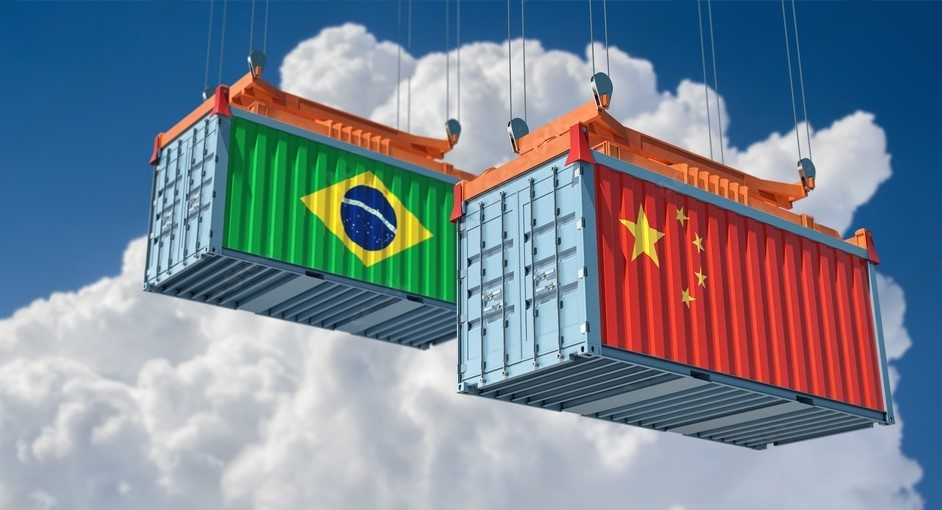
Introduction to Door-to-Door Shipping
Door-to-door shipping is a comprehensive logistics service that facilitates the seamless transportation of goods from the seller’s location in China directly to the buyer’s destination in Brazil. This method involves various steps, including customs clearance, transportation via ocean freight or air freight, and delivery to the final address. The entire process is managed by a freight forwarder, which acts as an intermediary between shippers and carriers.
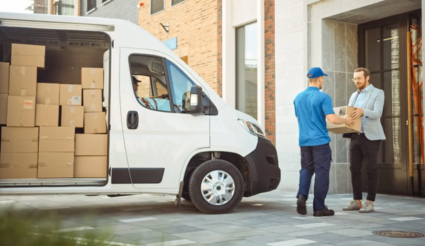
The shipping process typically involves the following stages:
- Preparation of Goods: Sellers in China prepare the goods for shipment, ensuring they meet packaging and labeling requirements.
- Pick-up: The freight forwarder arranges for the goods to be picked up from the seller’s premises in China.
- Transportation: The goods are transported to the port or airport, where they are loaded onto a vessel or plane bound for Brazil.
- Customs Clearance: Upon arrival in Brazil, the goods must clear customs, which can include inspections and payment of duties and taxes.
- Final Delivery: After clearing customs, the goods are delivered to the specified address in Brazil.
Importance of Door-to-Door Services in Global Trade
Door-to-door shipping plays a crucial role in the global trade ecosystem, especially for businesses engaged in international transactions. Here are several reasons why this service is vital:
- Convenience: It simplifies the shipping process for businesses by handling every aspect of logistics, from pick-up to delivery.
- Time Efficiency: By coordinating all logistics under one service, door-to-door shipping can significantly reduce transit times.
- Cost-Effectiveness: Utilizing a single provider for logistics can lead to better rates and more predictable pricing, which is essential for budgeting in international trade.
- Risk Mitigation: By working with experienced freight forwarders like Dantful International Logistics, companies can minimize risks associated with shipping, such as delays or damage to goods.
Door-to-door shipping from China to Brazil is an efficient and reliable solution that enhances global trade, providing businesses with the convenience and support needed to succeed in the international market. To learn more about Dantful International Logistics’ services, including Ocean Freight options, you can reach out to our team for personalized assistance.
Benefits of Door-to-Door Shipping
Convenience and Efficiency
Convenience is a primary advantage of door-to-door shipping. This service handles all logistics, allowing businesses to focus on their core activities without worrying about the intricate details of shipping. Here are some key aspects that highlight its efficiency:
- Simplified Logistics Management: With door-to-door shipping, the entire process is streamlined under one provider, eliminating the need for businesses to coordinate multiple service providers. This integration can lead to faster communication and better problem-solving.
- Reduced Handling and Risk of Damage: Since the goods are handled fewer times throughout the shipping process, there is a lower risk of damage or loss. Fewer transfers mean less exposure to the potential mishandling that can occur during transit.
Cost-Effectiveness
Door-to-door shipping can also be a cost-effective solution for businesses. Here’s how:
- Potential Savings Through Consolidated Services: By utilizing a freight forwarder for all logistics needs, businesses can benefit from economies of scale. Freight forwarders often negotiate better rates with carriers, which can be passed on to their clients. This can lead to significant savings, especially for larger shipments.
- Comparison of Costs Between Door-to-Door and Traditional Shipping Methods:
| Shipping Method | Typical Cost Factors | Estimated Cost (example) |
|---|---|---|
| Door-to-Door Shipping | All-inclusive (pick-up, transport, customs, delivery) | $1,500 (for 500 kg) |
| Traditional Shipping | Separate fees for pick-up, customs, and delivery | $1,800 (for 500 kg) |
Overall, door-to-door shipping offers significant advantages in terms of convenience, efficiency, and cost-effectiveness. By opting for this service, businesses can ensure a smoother logistics experience while potentially saving money.
For more information on how Dantful International Logistics can assist your business with door-to-door shipping solutions, please contact our team for a personalized consultation.
Key Considerations for Shipping from China to Brazil
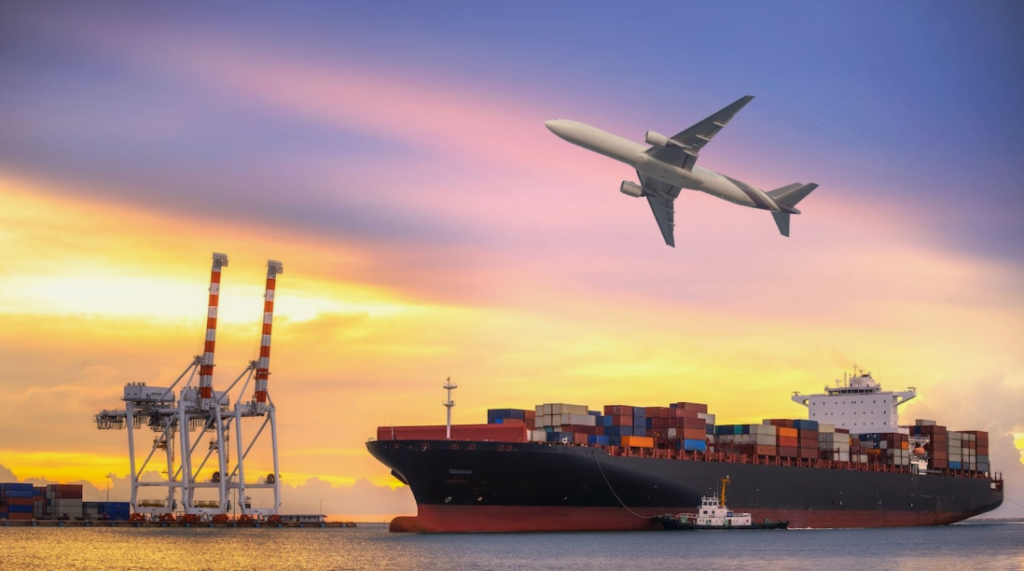
Shipping Methods
When planning to ship goods from China to Brazil, it’s essential to understand the various shipping methods available. Each method comes with its unique benefits and considerations:
Air Freight Door-to-Door Shipping
Air freight is often the fastest shipping method, ideal for high-value goods or time-sensitive shipments. This method offers door-to-door service, meaning the freight forwarder takes care of both the pick-up in China and the delivery in Brazil. While air freight tends to be more expensive than sea freight, it can significantly reduce transit times, making it ideal for urgent shipments.
Sea Freight Door-to-Door Shipping
Sea freight is a popular option for shipping larger volumes of goods. This method includes:
- FCL (Full Container Load): This option is suitable for businesses that have enough goods to fill an entire container. FCL offers a cost-effective and efficient way to ship large volumes, as the entire container is exclusively used for one shipment.
- LCL (Less than Container Load): For smaller shipments that do not fill a full container, LCL is a viable option. Multiple shippers share a container, which can reduce costs for businesses with smaller volumes.
- Loose Cargo Door-to-Door: This service involves the transportation of smaller cargo that does not require a full container. It is a flexible option for businesses that only need to send a limited quantity of goods.
- Full Container Door-to-Door: Similar to FCL, this service ensures that a full container is picked up and delivered directly to the final destination, providing security and efficiency for larger shipments.
Express Door-to-Door Shipping
Express services offer rapid shipping solutions for urgent shipments. These services are often more costly but provide the advantage of fast delivery times, usually within a few days. This is a suitable choice for businesses needing to send documents or small, high-value items quickly.
Customs Regulations and Documentation
Understanding customs regulations and the required documentation is crucial for a smooth shipping process from China to Brazil. Failing to comply with customs requirements can lead to delays, fines, or confiscation of goods.
Essential Documents Required for Shipping
Here are some of the essential documents required for shipping goods to Brazil:
- Commercial Invoice: A document detailing the transaction between the seller and buyer, including the description, quantity, and value of the goods.
- Packing List: An itemized list of the contents in the shipment, including details about how the goods are packed.
- Bill of Lading: A document issued by the carrier that serves as a receipt for the goods and provides details about the shipment.
- Customs Declaration: A document required by customs authorities, specifying the goods being imported and their value.
- Import License: Certain goods may require an import license or special permits for entry into Brazil. It’s essential to check if your shipment falls under this category.
Tips for Ensuring Compliance with Brazilian Customs
To ensure compliance with Brazilian customs, consider the following tips:
- Stay Informed: Keep abreast of any changes to customs regulations and requirements in Brazil.
- Hire an Experienced Freight Forwarder: Working with a knowledgeable freight forwarder like Dantful International Logistics can help navigate customs regulations and ensure all documents are accurately prepared.
- Verify Product Classification: Ensure that goods are correctly classified according to the Harmonized System (HS) codes, as misclassification can lead to delays and penalties.
- Double-check Documentation: Ensure that all required documents are complete and accurate to avoid issues during customs clearance.
For assistance with your shipping needs, reach out to Dantful International Logistics, your trusted partner in international freight forwarding.
READ MORE:
- Shipping From China to the United States
- Shipping From China TO Canada
- Shipping From China TO Mexico
- Shipping From China to Panama
- Shipping From China to Costa Rica
- Shipping From China to Brazil
- Shipping From China TO Colombia
- Shipping From China to Jamaica
- Shipping From China to Venezuela
Choosing the Right Shipping Partner
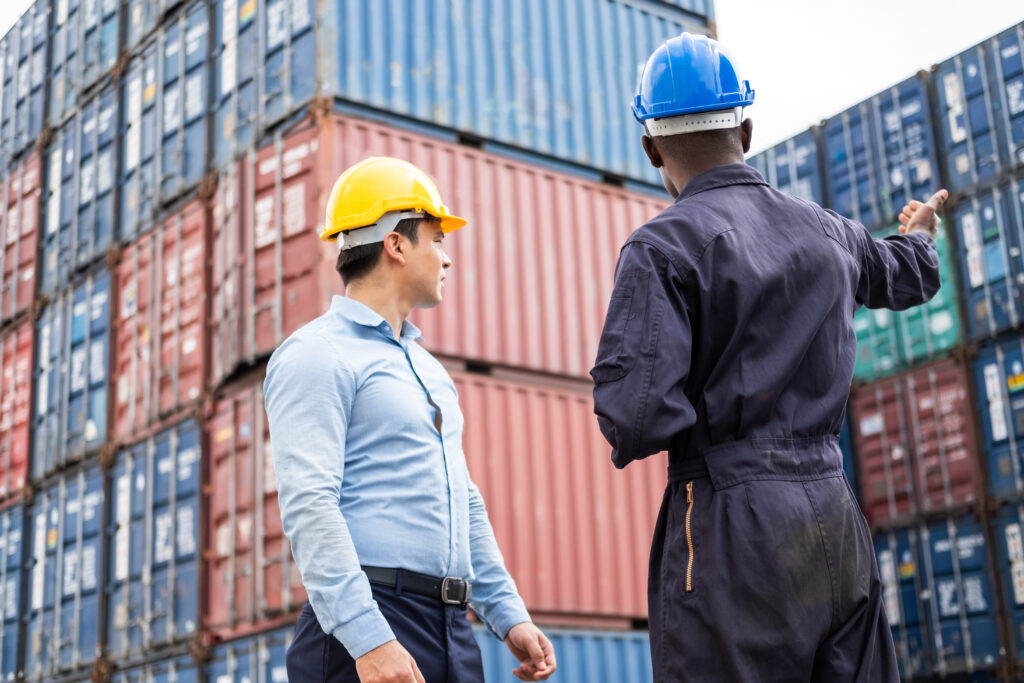
Evaluating Freight Forwarders
Selecting the right freight forwarder is crucial for ensuring a smooth shipping process when importing goods from China to Brazil. Here are some key criteria to consider when evaluating potential logistics providers:
- Experience and Expertise: One of the most important factors is the freight forwarder’s experience in international shipping. A provider with a proven track record in handling shipments to Brazil will have a better understanding of local regulations, customs processes, and potential challenges. Look for companies that specialize in your specific industry or type of goods to ensure they are familiar with relevant regulations.
- Reputation and Reviews: Research the freight forwarder’s reputation in the industry. Check online reviews and ratings to understand others’ experiences with their services. Look for testimonials from clients who have used their services for shipments similar to yours.
- Financial Stability: A financially stable logistics provider is important for ensuring that they can manage your shipment effectively and handle any unexpected issues that may arise. Consider reviewing their financial history or seeking references to ensure they have the resources to support your shipping needs.
- Certifications and Memberships: Certifications such as ISO standards, as well as memberships in international logistics associations, can indicate a commitment to quality and reliability. This can be a sign that the forwarder meets industry standards.
Service Offerings
The range of services provided by logistics companies varies, and it’s essential to choose a freight forwarder that can meet all your shipping needs. Consider the following aspects when evaluating service offerings:
- Comprehensive Service Portfolio: Look for a freight forwarder that offers a range of services, including customs clearance, warehousing, insurance, and tracking capabilities. Companies like Dantful International Logistics provide a full suite of services, ensuring that you have a one-stop solution for all your logistics needs.
- Tracking and Visibility: Effective tracking services allow you to monitor your shipment’s progress in real-time. A good logistics provider will offer transparent tracking options, enabling you to stay informed about your shipment status and estimated delivery times.
- Customer Support: Reliable customer support is essential for addressing any questions or concerns that may arise during the shipping process. Choose a freight forwarder that provides dedicated customer service, with representatives available to assist you throughout the shipping journey. This is especially important when dealing with international shipping, where prompt communication can resolve issues quickly.
By evaluating potential freight forwarders based on their experience, service offerings, and customer support, you can ensure a smooth shipping process. To learn more about how Dantful International Logistics can assist you with your shipping needs, feel free to reach out for a consultation or visit our website for more information on our services.
Cost Analysis of Door-to-Door Shipping
Breakdown of Shipping Costs
Understanding the cost structure of door-to-door shipping is essential for businesses to budget effectively and make informed decisions. Here are some key factors influencing shipping rates:
- Shipping Method: The choice between air freight and sea freight significantly impacts shipping costs. Air freight is typically more expensive due to faster transit times, while sea freight is more cost-effective for larger or bulk shipments.
- Distance and Route: The distance between the origin and destination, along with the selected shipping route, can affect costs. Longer distances and complex routes may incur higher freight charges.
- Weight and Volume: Shipping costs are often calculated based on either weight or volume, depending on which is greater. Heavier and bulkier shipments will incur higher shipping rates.
- Customs Duties and Taxes: Import duties and taxes imposed by the Brazilian government will add to the total shipping cost. It’s crucial to understand the applicable tariffs and fees to avoid unexpected expenses.
- Insurance: Adding insurance to the shipment can protect against loss or damage but will increase the overall shipping costs. The cost of insurance is typically based on the value of the goods being shipped.
Comparison of Costs for Different Shipping Methods
Here’s a comparison table illustrating estimated costs for various shipping methods from China to Brazil:
| Shipping Method | Estimated Cost (for 500 kg) | Transit Time |
|---|---|---|
| Air Freight | $3,000 – $5,000 (depending on route) | 5 – 7 days |
| Sea Freight (FCL) | $1,500 – $2,500 (for full container) | 25 – 30 days |
| Sea Freight (LCL) | $1,000 – $1,800 (depending on shipment size) | 30 – 40 days |
| Express Shipping | $5,000 – $8,000 (best for urgent needs) | 2 – 4 days |
Note: The costs and transit times mentioned above are estimates and can vary based on specific circumstances and market conditions.
Transit Times of Door-to-Door Shipping
Transit times play a crucial role in determining the best shipping method for your needs. Here’s a breakdown of expected delivery times for air and sea freight:
- Expected Delivery Times for Air and Sea Freight:
- Air freight is the fastest option, with delivery times ranging from 5 to 7 days. However, this method is more costly and often recommended for high-value or urgent shipments.
- Sea freight, while more economical, takes longer to deliver, typically requiring 25 to 40 days depending on the shipping route and whether the shipment is FCL or LCL.
- Impact of Global Events on Shipping Schedules:
- Global events such as pandemics, natural disasters, or geopolitical tensions can severely impact shipping schedules. Delays in customs clearance, port congestion, and changes in regulations can all contribute to longer transit times. Businesses must remain flexible and informed about the global shipping environment to anticipate potential disruptions.
By considering factors such as shipping methods, costs, and transit times, companies can make well-informed decisions that align with their logistics needs. For tailored shipping solutions that ensure cost-effectiveness and reliability, consider partnering with Dantful International Logistics, your trusted provider for international freight forwarding.
Dantful International Logistics Services:
- Dantful Ocean Freight Services
- Air Freight From China
- Amazon FBA Freight Forwarding
- WAREHOUSE Services
- One-Stop Customs Clearance Solution
- Cargo Insurance Services in China
- DDP Shipping Services By Dantful Logistics
- Out of Gauge Cargo Transportation Shipping Services
Steps in the Door-to-Door Shipping Process
Below, we outline the essential steps in this process, specifically for shipments from China to Brazil.
Step 1: Pickup from the Supplier in China
The first step involves arranging for the pickup of goods from the supplier’s location in China. This can be coordinated by your freight forwarder, such as Dantful International Logistics, who will handle the logistics of collecting the goods and preparing them for shipment. This stage includes:
- Scheduling the pickup time with the supplier.
- Inspecting the goods for quality and quantity.
- Preparing necessary documentation.
Step 2: Export Customs Clearance in China
Once the goods are collected, they need to undergo export customs clearance. This involves:
- Completing the required export documentation, including the commercial invoice, packing list, and any permits.
- Ensuring the compliance of the goods with Chinese export regulations.
- Paying any applicable export duties or taxes.
It’s advisable to work with a knowledgeable customs broker to facilitate this process and avoid delays.
Step 3: International Transportation (Air or Sea)
After successful customs clearance, the next step is the international transportation of the goods. Depending on your budget and urgency, you can choose between air freight or ocean freight. Here’s a brief comparison:
| Transportation Mode | Speed | Cost | Ideal For |
|---|---|---|---|
| Air Freight | Fast (1-7 days) | Higher | Urgent shipments, perishable goods |
| Ocean Freight | Slow (15-45 days) | Lower | Bulk shipments, cost-sensitive cargo |
Make sure to consult with your freight forwarder to determine the best option for your needs.
Step 4: Import Customs Clearance in Brazil
Upon arrival in Brazil, your shipment will need to go through import customs clearance. This includes:
- Submission of necessary documentation to Brazilian customs authorities.
- Payment of import duties and taxes.
- Compliance checks to verify that the goods adhere to local regulations.
Utilizing the services of a local customs broker can greatly streamline this process.
Step 5: Last-Mile Delivery to the Final Destination
Finally, the last step is the last-mile delivery, where goods are transported from the port or airport to the final destination. This step often involves:
- Coordinating with a local delivery service.
- Ensuring proper handling and delivery of the goods.
- Providing tracking information to the recipient.
For a hassle-free shipping experience, consider partnering with Dantful International Logistics, a highly professional, cost-effective, and high-quality logistics service provider for global traders.

Young Chiu is a seasoned logistics expert with over 15 years of experience in international freight forwarding and supply chain management. As CEO of Dantful International Logistics, Young is dedicated to providing valuable insights and practical advice to businesses navigating the complexities of global shipping.
The other language versions of this article
- عملية خطوة بخطوة للشحن من الباب إلى الباب من الصين إلى البرازيل
- Stapsgewijs proces voor deur-tot-deur verzending van China naar Brazilië
- Processus étape par étape pour l’expédition porte à porte de la Chine vers le Brésil
- Schritt-für-Schritt-Prozess für den Tür-zu-Tür-Versand von China nach Brasilien
- Procedura dettagliata per la spedizione porta a porta dalla Cina al Brasile
- Proceso paso a paso para envíos puerta a puerta desde China a Brasil
- Processo passo a passo para envio porta a porta da China para o Brasil
- Пошаговый процесс доставки от двери до двери из Китая в Бразилию
- Çin’den Brezilya’ya Kapıdan Kapıya Nakliye İçin Adım Adım Süreç










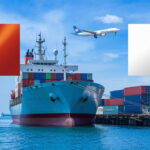
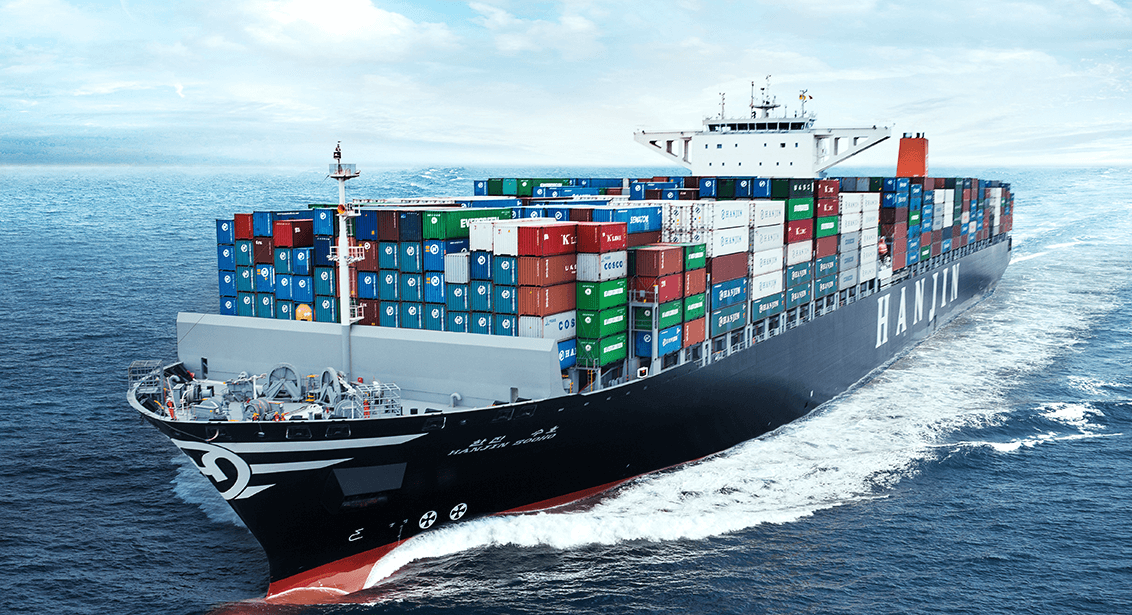
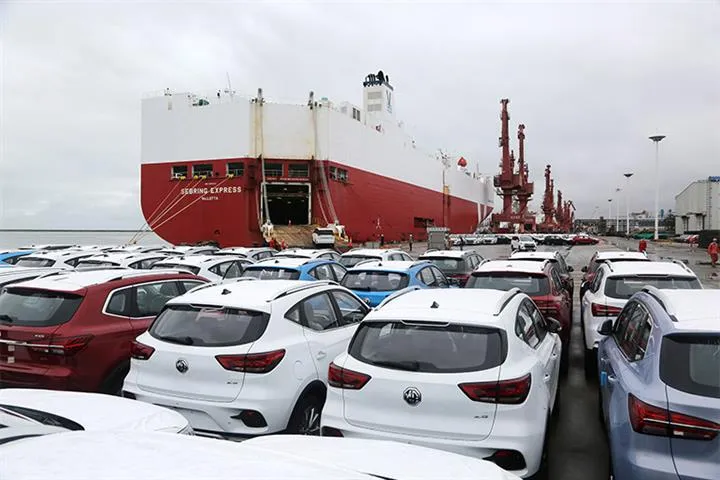

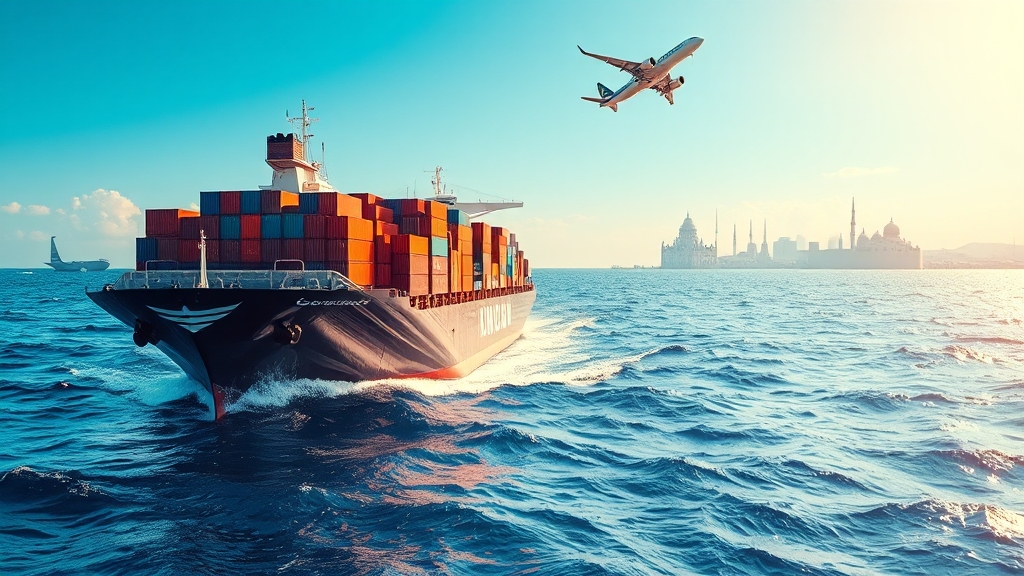
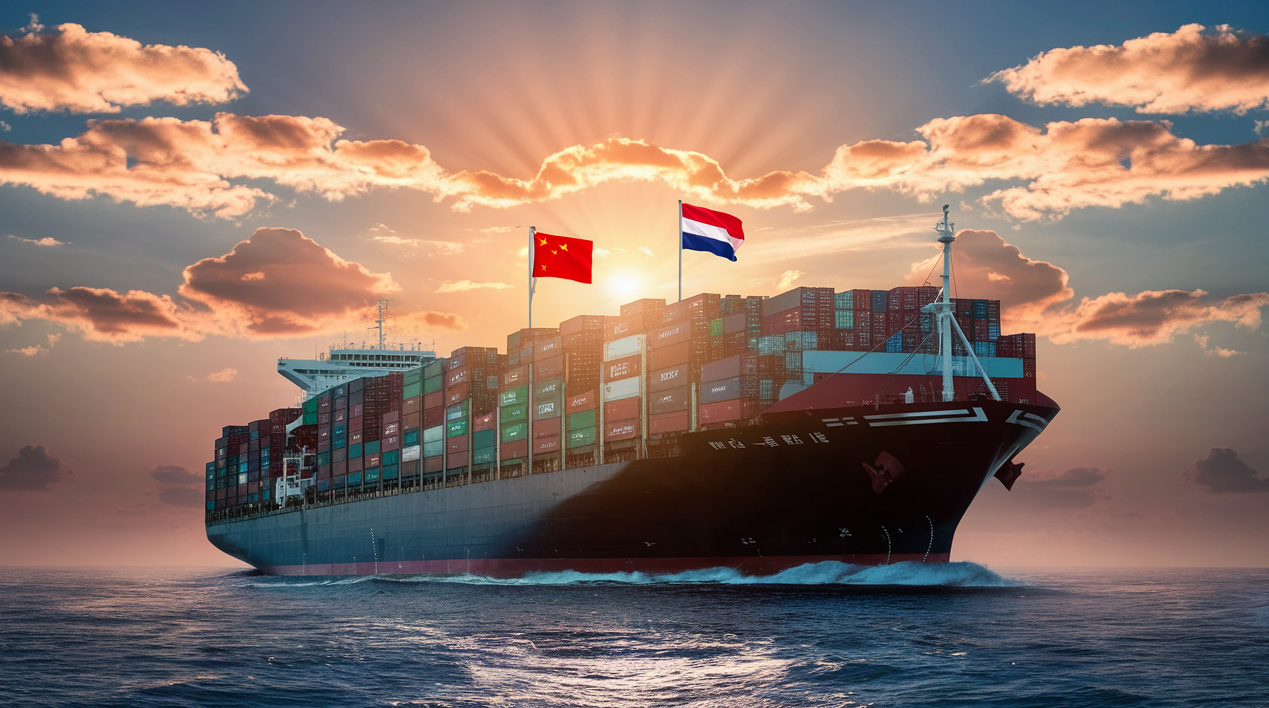





 Afrikaans
Afrikaans Shqip
Shqip አማርኛ
አማርኛ العربية
العربية Հայերեն
Հայերեն Azərbaycan dili
Azərbaycan dili Euskara
Euskara Беларуская мова
Беларуская мова বাংলা
বাংলা Bosanski
Bosanski Български
Български Català
Català Cebuano
Cebuano Chichewa
Chichewa 简体中文
简体中文 繁體中文
繁體中文 Corsu
Corsu Hrvatski
Hrvatski Čeština
Čeština Dansk
Dansk Nederlands
Nederlands English
English Esperanto
Esperanto Eesti
Eesti Filipino
Filipino Suomi
Suomi Français
Français Galego
Galego ქართული
ქართული Deutsch
Deutsch Ελληνικά
Ελληνικά Kreyol ayisyen
Kreyol ayisyen Harshen Hausa
Harshen Hausa Ōlelo Hawaiʻi
Ōlelo Hawaiʻi עִבְרִית
עִבְרִית हिन्दी
हिन्दी Hmong
Hmong Magyar
Magyar Íslenska
Íslenska Igbo
Igbo Bahasa Indonesia
Bahasa Indonesia Gaeilge
Gaeilge Italiano
Italiano 日本語
日本語 Basa Jawa
Basa Jawa ಕನ್ನಡ
ಕನ್ನಡ Қазақ тілі
Қазақ тілі ភាសាខ្មែរ
ភាសាខ្មែរ 한국어
한국어 كوردی
كوردی Кыргызча
Кыргызча ພາສາລາວ
ພາສາລາວ Latin
Latin Latviešu valoda
Latviešu valoda Lietuvių kalba
Lietuvių kalba Lëtzebuergesch
Lëtzebuergesch Македонски јазик
Македонски јазик Malagasy
Malagasy Bahasa Melayu
Bahasa Melayu മലയാളം
മലയാളം Maltese
Maltese Te Reo Māori
Te Reo Māori मराठी
मराठी Монгол
Монгол ဗမာစာ
ဗမာစာ नेपाली
नेपाली Norsk bokmål
Norsk bokmål پښتو
پښتو فارسی
فارسی Polski
Polski Português
Português ਪੰਜਾਬੀ
ਪੰਜਾਬੀ Română
Română Русский
Русский Samoan
Samoan Gàidhlig
Gàidhlig Српски језик
Српски језик Sesotho
Sesotho Shona
Shona سنڌي
سنڌي සිංහල
සිංහල Slovenčina
Slovenčina Slovenščina
Slovenščina Afsoomaali
Afsoomaali Español
Español Basa Sunda
Basa Sunda Kiswahili
Kiswahili Svenska
Svenska Тоҷикӣ
Тоҷикӣ தமிழ்
தமிழ் తెలుగు
తెలుగు ไทย
ไทย Türkçe
Türkçe Українська
Українська اردو
اردو O‘zbekcha
O‘zbekcha Tiếng Việt
Tiếng Việt Cymraeg
Cymraeg יידיש
יידיש Yorùbá
Yorùbá Zulu
Zulu